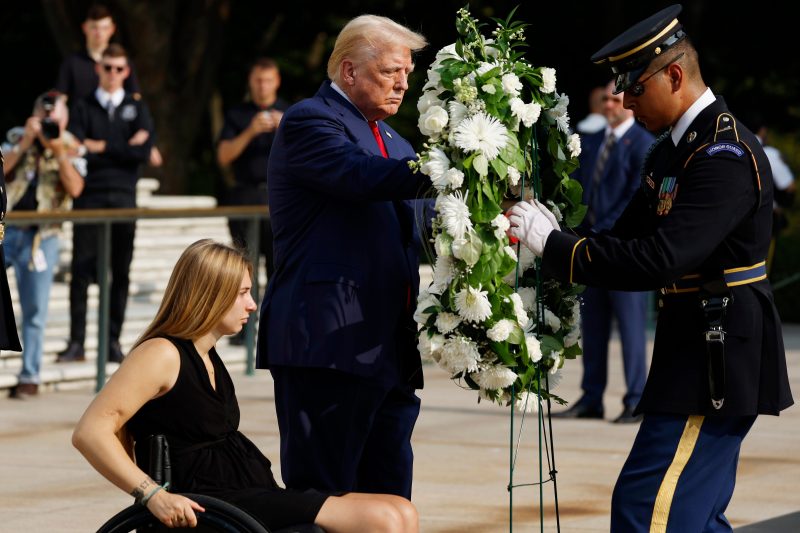In the ever-evolving landscape of global politics, the issue of military strength remains a crucial point of contention. Leaders around the world strive to maintain and enhance their nations’ military capabilities to ensure security and deter potential threats. In the United States, two prominent figures, former President Donald Trump and Vice President Kamala Harris, have been actively promoting their distinct visions for the country’s military prowess and preparedness.
Former President Trump, known for his America First approach, placed a significant emphasis on bolstering the U.S. military during his time in office. Under his administration, defense spending saw notable increases, with a focus on modernizing the armed forces and investing in advanced technologies. Trump’s administration also prioritized expanding the U.S. Navy’s fleet, developing next-generation combat aircraft, and enhancing missile defense systems. The goal was clear: to ensure that the U.S. maintained its status as the world’s leading military power.
On the other hand, Vice President Kamala Harris has articulated a different perspective on military strength, emphasizing a more nuanced and multilateral approach. Harris advocates for a foreign policy strategy that values diplomacy and collaboration with allies while maintaining a robust military presence. She has highlighted the importance of working closely with international partners to address global security challenges collectively. Harris aims to strike a balance between military strength and diplomatic engagement, recognizing the interconnected nature of today’s geopolitical landscape.
The differing approaches of Trump and Harris reflect broader debates within U.S. foreign policy circles regarding the best way to secure the nation’s interests and promote stability on the world stage. While Trump’s emphasis on military power resonates with those seeking a more assertive stance in global affairs, Harris’ focus on diplomacy and alliances appeals to those who prioritize cooperation and dialogue.
As the United States navigates complex geopolitical challenges, including strategic competition with adversaries such as China and Russia, the question of military strength will continue to play a central role in shaping national security policy. Both Trump and Harris offer contrasting visions for how the U.S. should address these challenges, underscoring the complexities of modern warfare and international relations.
Ultimately, the debate between Trump and Harris over military strength underscores the broader discussion within the United States over the role of the military in advancing national interests and preserving global peace. How the nation balances military power with diplomacy, alliances, and emerging threats will be a crucial determinant of its future security and standing in the world. As leaders advocate for their respective approaches, the American public and policymakers alike must carefully consider the implications of these competing visions on the nation’s defense posture and strategic priorities.
